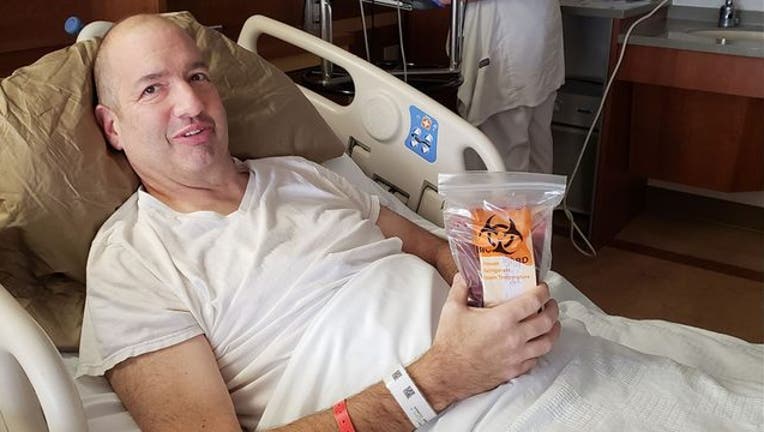Ohio man goes to emergency room for bug bite, receives cancer diagnosis instead

The decision by an Ohio man to go to the emergency room to have a second look at a bug bite turned out to be a life-saving one, doctors say.
Mike Balla, 46, was experiencing an unusual pain in his foot in August 2018 after he believed he was having a reaction to some sort of insect bite.
After two weeks of suffering, two rounds of antibiotic treatments from two separate visits to urgent care facilities, and a visit to his family doctor, Balla decided it was time to go to the hospital.
Once at the Cleveland Clinic Fairview Hospital emergency room, Balla was stunned when he was told by a doctor that he had cancer, the hospital said in a press release.
"I said, ‘You must be in the wrong room… I'm here for a bite on my foot."
Balla was informed that the red, swollen pain in his foot was not from a bug bite but was actually an indication that he had adult acute myeloid leukemia, a type of cancer that targets the blood and bone marrow and can progress quickly unless treated immediately.
The Rocky River resident was quickly transported to the hospital's main campus that same day, where he started chemotherapy treatments.
Doctors say Balla caught the cancer just in time; his cancer went into remission after just a month of inpatient treatment. He received a bone marrow transplant from his brother in December, and was already on the road to recovery.
In May, Balla received the upsetting news that his cancer was back. But, after more chemotherapy treatments, he went back into remission.
Now cancer-free, Balla is using his story to encourage more men to stop ignoring what they might think are minor health concerns.
"I have learned that you have to kind of follow up and make sure that you're listening to your body," he said, according to FOX8.
Doctor Aaron Gerds, an oncologist at the Cleveland Clinic, said he sees more and more men ignoring warning signs and attributing them simply to skin problems.
"It's called acute because if people don't get treatment right away, it can take people's lives within days and weeks," he said.
Get updates on this story from FOXNEWS.com.

